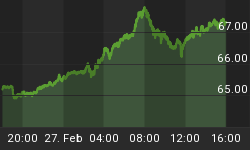Last month, we argued that a weaker ZEW survey in Germany was not necessarily a cause for concern, and that the Ifo institute's business climate survey was a better leading indicator for the German and Euro-zone economies. Today came the news that while the June ZEW current conditions index hit a five-year high of 11.9 (up from 8.7 in May) the expectations index dropped to 37.8. That's down from 50.0 in May, the lowest in eleven months, and the fifth consecutive slide.
As we've noted before, the ZEW survey asks some 300 analysts and institutional investors for their views of where the German economy is headed. Once again, they voiced concern about the impact of a rising euro on German exporters and about the impact of next year's planned tax hikes on the nascent recovery in consumer confidence. While we still feel the Ifo is the more important sentiment indicator, the trend of the ZEW does suggest that the German economy may see a peak in Q2 and start to slow somewhat in the second half.
The Ifo institute's business climate survey for June is due for release on the 27th. This monthly survey asks 7,000 German firms for their assessments of the German business climate and their own short-term plans. News stories tend to focus on the headline business climate number, but more important is the sub-index on business expectations. This is a good leading indicator of Euro-zone industrial production trends.
As we noted at the time (Daily Global Commentary, May 24: "German and Belgian Data Point to Firm Euro-zone Economy in 2006; But Outlook for 2007 Uncertain") May's headline index eased a tad from April's 15-year peak, but was still high at 105.6 (105.9 in April), while the expectations sub-index eased back further, to 104.0 from 105.5 in April. All told, the report suggested that expectations for the final months of 2006 were turning a little more cautious. If this trend is born out in the June Ifo report, we can more confidently forecast a slower German - and Euro-zone - economy heading into 2007. If the June Ifo is markedly weaker than May's, then the euro will take a beating.















